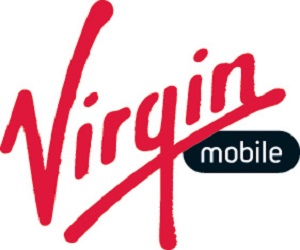Internet Detox: The Phenomenon of “Unplugging”
Our obsession with the internet meets our
obsession with detox cleanses.
Surprisingly little chaos ensues.
by Ariana Espiritu
With its radical premise as a tech-free adult camp, sanctioned by Oakland-based group, Digital Detox, Camp Grounded has been taking the national media by storm. The New Yorker, The Atlantic, and The Huffington Post are just a few of the major publications that have something to say about the three day event held in Navarro, California, a city just a few miles outside of San Francisco-ironically, one of the nation’s largest tech hubs. Three hundred and fifty guests willingly gave up their phones, iPads, and Kindles, to experience a summer filled with meditation workshops, talent shows, and pre-Facebook nostalgia. First person accounts describe a surreal escape from the pressures of reality, including the constraints of identity, as all names exchanged at the camp were pseudonyms and talking about work was strictly forbidden.
Camp Grounded is just one example in the wave of Internet and technology backlash. The trend of ‘unplugging’ is supplemented with increasing reminders to focus on the present, harvest authentic relationships, and be wary of an all-consuming digital life. The movement has taken on such force that Fast Company, the business magazine that focuses on design and technology, published its July/August 2013 issue with a cover story that followed one man’s experience of unplugging and encouraged their readers to do the same, albeit for a temporary yet unthinkable 25 days. Baratunde Thurston, the author of the article and CEO of Cultivated Wit, extensively prepped for his digital fast, alerting all of his email contacts that his existence, as far as the Internet is concerned, would be put into question for a little under a month. He retells his time away from the cacophony of virtual voices with an emphasis on his personal, real life interactions, concluding that our constant need for digital stimulus often distracts us from deeper connections.
Although Thurston strays from completely ridding himself of his social networks and rejoined the internet community after his 25 days were up, the correlation of digital experience with less real, shallower experience is alive and well throughout his retrospective account. This relationship is nothing new, according to an article, published by The Atlantic, that connects the current compulsion for a technology cleanse with the 60’s and 70’s phenomenon of “New Naturalism“. Madrigal, author of The Atlantic piece, “‘Camp Grounded’, ‘Digital Detox’, and the Age of Techno-Anxiety”, describes a generation riddled with a distrust that seems misplaced. Chiming into the heated conversation he notes, “individuals unplugging is not actually an answer to the biggest technological problems of our time.”
What, then, does distancing ourselves from technology –– whether it be a literal escape through retreats like Camp Grounded or an intentional vacation like the Thurston’s 25 day fast –– achieve? Most who have commented on the rising popularity of unplugging, acknowledge the benefits that technology gives us. Information at our fingertips, innovative and more efficient ways of keeping ourselves protected and a globalized platform of connected voices are only a few of the ways that the onslaught of a digital culture has enriched our lives. Is it even possible to keep what has grown to be a set fixture in daily life at bay? Or has the hive mind of the Internet become an irremovable extension of who we are?
It may be possible that the feelings of being burnt out from the Networked Age can be curtailed by temporary, consistent reprieves. In that case, unplugging revolutionaries themselves, Digital Detox, are on to something with this dreamy promise: “Return to daily life with new found energy, creative inspiration, and a refreshed approach to a balanced life in the digital age”. A balanced life in the digital age –– who knew such a thing was possible?
MORE NEWS THAT MAY INTEREST YOU:

